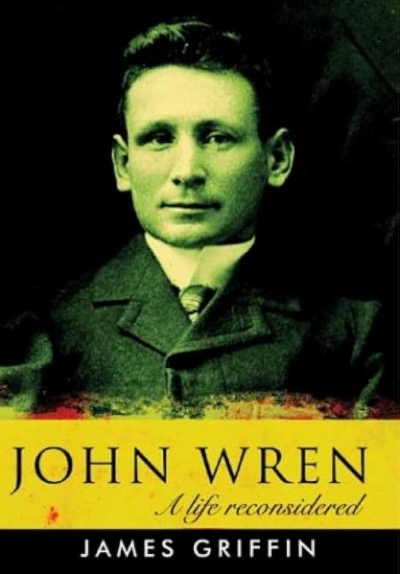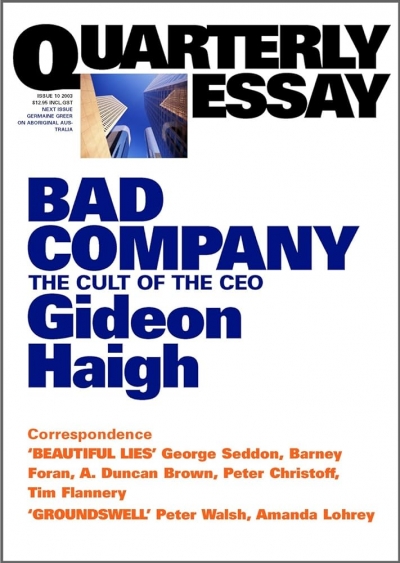Archive
In a much-quoted passage at the end of the General Theory of Employment Interest and Money (1936), John Maynard Keynes remarked, with some whimsy, on the power of policy intellectuals like himself:
... (read more)The ideas of economists and political philosophers, both when they are right and when they are wrong, are more powerful than is commonly understood. Indeed the world is ruled by little else. Practical men, who believe themselves exempt from any influences, are usually the slaves of some defunct economist. Madmen in authority, who hear voices in the air, are distilling their frenzy from some academic scribbler of a few years back. I am sure that the power of vested interests is vastly exaggerated compared to the gradual encroachment of ideas.
Bad Company by Gideon Haigh & The Big End of Town by Grant Fleming, David Merrett and Simon Ville
Reflections on Life, Love and Society by Chamfort (edited and translated by Douglas Parmée)
Very Big Journey: My life as I remember it by Hilda Jarman Muir
Consortia: International Networking Alliances of Universities edited by David Teather
The Cruise of the Janet Nichol among the South Sea Islands edited by Roslyn Jolly & Robert Louis Stevenson edited by Roger Robinson
On the Hiryu, Hajime Toyoshima
Starred in the group photos like Andy Hardy,
He was so small and cute.
His face, as friendly as his first name
... (read more)The poet Bruce Beaver died on February 17, something we couldn’t note in the March issue of ABR, as we had just gone to print. Since then, the tributes have been many, and utterly deserved. We publish Beaver’s poem ‘October 1999’ in this issue, along with a tribute from Tom Shapcott. UQP informs us that it will release the poet’s posthumous collection, The Long Game and Other Poems, on 17 February 2005.
... (read more)Asiye Guzel Zeybek – a Turkish journalist, editor and author of Rape under Torture (1999) and Our Cakir: The Life of a Revolutionary (2001) – was arrested on 27 February 1997, together with nineteen other colleagues. Zeybek, now thirty-three years old, is an executive board member of the Istanbul Branch of the Progressive Journalists’ Association, and also editor-in-chief of Atilin. She was specifically accused under Article 168 of the Turkish Penal Code, and subsequently convicted for her association with the now banned Marxist-Leninist Communist Party. Zeybek’s legal counsel staunchly rebutted the prosecutor’s allegations of her involvement in any violence.
... (read more)





